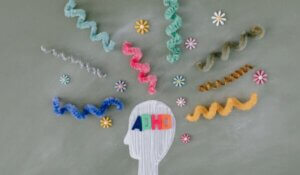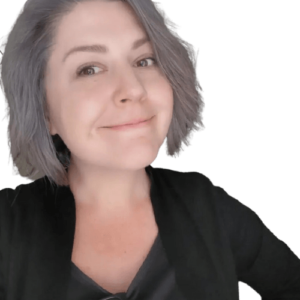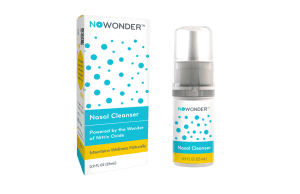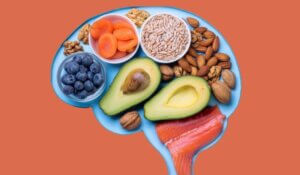
Although there isn’t a cure for attention deficit hyperactivity disorder, there are many effective treatments available. Often, these treatment plans include medication, but that’s not always necessary. Stimulant medications are usually the first choice for treating ADHD in both children and adults. However, many people and parents prefer to explore holistic methods, such as ADHD brain supplements or treatments. Various natural remedies for ADHD have been researched and found to be potentially helpful in managing ADHD symptoms for both children and adults, such as Zoomind.
Understanding ADHD and Its Challenges
Certain areas of the brain are structurally different in people with ADHD. The frontal cortex, which controls behavior, emotions, and attention, shows weaker structure and function. Changes in the limbic system, which influences emotions and motivation, can lead to hyperactivity and poor decision-making. The basal ganglia, which is involved in learning skills and managing emotions and focus, is also impacted by ‘glitches’ in their circuits in people with ADHD.
Another key difference is in the default mode network (DMN), which is more active in ADHD brains. This makes it harder to stay focused, as attention is easily drawn away to other thoughts, making it difficult to concentrate on boring or repetitive tasks, especially if you’re a kid!
Chemically, one major difference between an ADHD brain and a normal brain is the amount of norepinephrine, a chemical made from dopamine. Experts think that having less dopamine and norepinephrine is linked to ADHD. This imbalance can cause problems with attention and impulsivity. It also changes how the brain’s reward system works, altering how someone with ADHD feels pleasure and reward.
ADHD may disrupt the transmission of noradrenaline, which is important in the prefrontal cortex. This can make it harder to remember information needed to finish tasks and weaken one’s ability to block out distractions and urges.
Dopamine helps control emotions and is connected to feelings of pleasure and reward. In people with ADHD, there might be less dopamine in the brain, making it tough to stay motivated, especially when rewards seem small or distant. ADHD brains often prefer quick, smaller rewards over bigger, long-term ones. This is where ADHD brain supplements like Zoomind may be helpful.
ADHD Brain Supplements: l-Tyrosine, phosphatidylserine, omega-3 for ADHD
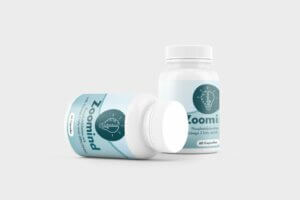
L-Tyrosine
L-tyrosine is an amino acid that helps the body create neurotransmitters. These neurotransmitters, like dopamine and norepinephrine, are crucial for brain cell communication and influence focus, mood, and energy levels. When we consume L-tyrosine through food or supplements, it provides the brain with the necessary materials to produce these chemicals, which can help us stay alert and balanced. This might be beneficial for conditions like ADHD, where these neurotransmitters may be imbalanced. However, it’s important to remember that L-tyrosine isn’t a cure-all and needs a lot more research for its use in ADHD and should be part of a broader health strategy.
In the body, L-tyrosine is transformed into L-DOPA and then into essential neurotransmitters like dopamine, norepinephrine, and epinephrine, which are key in mood regulation, focus, and stress response. You can get L-tyrosine from foods such as cheese, soybeans, fish, chicken, nuts, eggs, dairy, beans, and whole grains. Supplements can offer a higher dose for those who don’t get enough from their diet.
Phosphatidylserine
Phosphatidylserine (PS) is an important type of lipid (fat) found in the inner part of the brain’s cell membrane. PS is vital for brain health as it works with proteins that help neurons survive and grow. It also plays a role in releasing neurotransmitters and affects various receptors and proteins in the brain.
Some studies have shown that taking PS supplements can improve certain memory functions in people with ADHD, although it’s not entirely clear how this happens. This suggests that PS might play a beneficial role in supporting brain health, but more research is needed to fully understand its impact and the exact mechanisms behind these improvements.
Specifically, PS supplements helped reduce issues with attention and hyperactivity-impulsivity. Working memory, which relies on networks in the prefrontal cortex (PFC) of the brain, is crucial for holding and using information even when we can’t see or hear it anymore. PS has been found to support dopamine and glutamate activity, which helps the brain function better.
In one study, PS did significantly improve short-term auditory memory, which is the ability to remember spoken information. This is important for learning language and reading. Unlike the placebo group, those who took PS showed a notable improvement in auditory memory.
PS also helped reduce errors in attention during a specific task called the GO/NO GO task, which tests the ability to control responses. This task became more challenging when children had to switch their focus, making attention control even more critical. PS supplementation seemed to help more with this difficult version of the task, as it reduced both inattention and impulsivity errors.
Omega-3

In the brain, DHA helps with the flexibility and function of cell membranes and the release of neurotransmitters. Not getting enough omega-3s can increase the risk of various mental health issues such as ADHD, autism, bipolar disorder, depression, and even suicidal thoughts. Research shows that taking omega-3 supplements may help improve these mental health conditions.
Children and adults with ADHD often have lower levels of omega-3s in their cell membranes, which can be linked to behavior and learning problems like hyperactivity, anxiety, and trouble sleeping. In Japan, a study with 40 children found that adding omega-3s to their diet improved ADHD symptoms, according to their teachers and parents. Another study with 50 children showed that a supplement containing omega-3s and evening primrose oil significantly improved attention and behavior. Additionally, another trial found that an omega-3/6 supplement led to a noticeable reduction in ADHD symptoms in children and teens.
Integrating Natural Remedies for ADHD Management
A study involving 200 children with ADHD examined the effects of combining phosphatidylserine (PS) with Omega-3 fatty acids over 30 weeks. The study found a noticeable decrease in restlessness, impulsivity, and better emotional regulation in the children.
The researchers concluded that using PS with Omega-3s might help reduce ADHD symptoms, particularly in children who are hyperactive, impulsive, and have emotional and behavioral issues.
If you or your children are living with ADHD or ADD, it might be worth trying phosphatidylserine for a few months before using medications like Adderall or Ritalin, which are medications many parents wish to avoid. Adding Omega-3s and L-tyrosine to the regimen could also be beneficial, and it is available in one safe formulation with Zoomind.
Other natural remedies for ADHD to incorporate alongside supplementation are:
- Behavioral therapies
- A healthy, balanced diet
- Exercise
- Connecting with nature and
- Creating systems for regular activities.
FAQs
Are all ADHD brain supplements the same?
ADHD brain supplements often have the same goal: to support cognitive function by enhancing neurotransmitter activity, improving focus, and maintaining brain health. However, they may have very different formulations, from omega-3 to herbal ginseng.
Are these supplements safe for children with ADHD?
Zoomind is generally considered safe, but it’s essential to consult a healthcare professional for appropriate dosing, especially for children.
Can these supplements be used alongside ADHD medications?
Yes, they often complement medications, but always consult with a healthcare provider before combining treatments.
How long does it take to see results from these supplements?
Results can vary; some may notice improvements in a few weeks, while others might take longer. Consistent usage and consultation with a healthcare provider are key.

